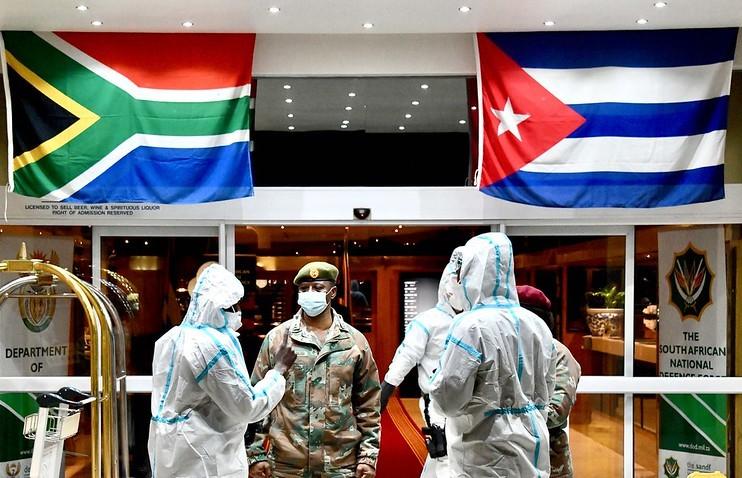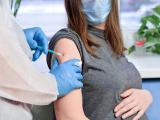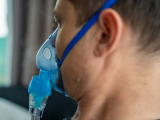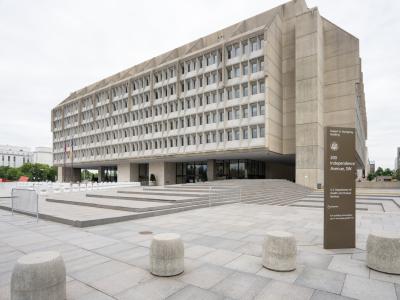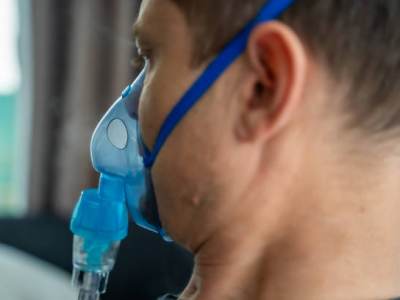The global surge in COVID-19 cases is mainly driven by intense transmission in a relatively few countries, the head of the World Health Organization (WHO) said today, with South Africa now among the five hardest-hit countries.
The global total today is at 15,348,877 cases, and 626,190 people have died from their illnesses, according to the Johns Hopkins online dashboard.
Political leadership, community engagement called for
At a media briefing today, WHO Director-General Tedros Adhanom Ghebreyesus, PhD, said two thirds of the world's cases have been reported from just 10 countries and that half of the cases are from just three countries: the United States, Brazil, and India.
He repeated that political leadership and community engagement are the two key response pillars. Tedros said the best way to tamp down transmission is to get individuals and communities on board with managing their own risk and making evidence-based decisions to protect their health and that of people around them.
Adjusting to a new normal will depend on where an individual lives and what the circumstances are, he said. "In recent weeks we have seen outbreaks associated with nightclubs and other social gatherings, even in places where transmission had been suppressed," Tedros said. "We must remember that most people are still susceptible to this virus. As long as it's circulating, everyone is at risk."
Just because cases are low doesn't mean people should let their guard down, he said. Tedros also called on young people to start a global movement for health as a human right and not just a privilege, noting that young people have a track record of leading grassroots efforts on climate change and racial equality.
At today's briefing, WHO officials, responding to a question from a journalist, strongly dismissed US Secretary of State Mike Pompeo's fresh attack on the WHO as being beholden to China and responsible for British COVID-19 deaths in a private meeting this week with United Kingdom officials.
Tedros said Pompeo's accusations are untrue and without any foundation and that the WHO's entire focus is on saving lives. "WHO will not be distracted by these comments," he added.
In another global development, the United Nations Development Program (UNDP) said today that a temporary basic income for the world's poorest populations could slow the pandemic by allowing nearly 3 billion people to stay home. In its report, the UNDP said it would cost $199 billion a month to provide basic guaranteed income to 2.7 billion people living below or just above the poverty level in 132 developing countries.
It noted that countries could pay for the effort, for example, with funds they would use to service their debts and that some countries, such as Togo, have already taken steps toward providing temporary basic incomes.
South Africa leads Africa's continuing case rise
Earlier this week, South Africa—Africa's COVID-19 epicenter—rose to become the country with the fifth-highest case total, and at today's WHO media briefing, Mike Ryan, MD, who leads the group's health emergencies program, said WHO officials will conduct a virtual mission to the country to assess the situation and offer support. However, he added that South Africa has tremendous internal capacity and has done a good job with its escalating COVID-19 situation.
At a separate briefing today, Matshidiso Moeti, MBBS, director of the WHO's African regional office, said cases in Africa rose 23% last week, down from 27% the week before, and some countries are approaching a critical number of infections that can stress their health systems.
"This has very real consequences for the individuals who work in them, and there is no more sobering example of this than the rising number of health worker infections," she said. At the global level, healthcare worker infections make up 10% of all COVID-19 cases, and she said preliminary data from Africa suggests that they make up more than 5% of cases in 14 sub-Saharan Africa countries and more than 10% in 4 of them.
Reasons range from inadequate access to personal protective equipment (PPE) to repurposed health workers who haven't been adequately trained on how to prevent COVID-19 to fatigue due to heavy workloads, Moeti said. The WHO has been helped countries with PPE supplies and health worker training, and some countries, such as Sierra Leone and the Ivory Coast, have had success in reducing infections among health workers.
The WHO Africa regional office's latest COVID-19 situation report, said of 117,267 new cases last week, 71% were from South Africa. However, it noted that the country's reported deaths are lower than for other countries at the top of the case list. Countries that reported the highest increases in cases last week include Equatorial Guinea, Gambia, Zimbabwe, Namibia, Zambia, and Angola.
In a related development, Uganda's health ministry today reported its first COVID-19 death, a 34-year-old woman who had symptoms that included fever, dry cough, headache, and breathing difficulty.
Hot spot cases surge
The United States yesterday reported nearly 72,000 cases, and Brazil and Argentina both reported daily record highs, Reuters reported. Brazil's total was 67,860, and Argentina's was 5,782.
Latin American countries have reported about 4 million cases so far, and Peru, which has the region's second-highest total, added 3,688 previously uncounted deaths, lifting its fatality count to about 17,500. In Argentina, with Buenos Aires as the main hot spot, COVID-19 activity has risen sharply as the country's lockdown has eased.
India yesterday reported a record daily high of 45,720 cases, Reuters reported, and topped that today with another record high of 48,446.
Ryan said the three main hot spots are powerful countries that have the internal capacity to respond to their outbreaks, but large countries with large populations can have large problems with complex challenges, including governmental and political ones. He added that the WHO is always ready to provide guidance.
Flare-ups expected, require fast response
In other global developments, countries that have brought their outbreaks under control are battling flare-ups. At today's main WHO briefing, Maria Van Kerkhove, PhD, technical lead for COVID-19, said sporadic cases and clusters are expected, and countries should be ready to act fast when they happen.
She urged countries to know where the outbreaks are occurring—such as certain sectors, closed facilities, or nightclubs—in taking a data-driven approach and to take targeted temporary steps to reduce transmission.
Among locations reporting recent rises in cases:
- Tokyo today reported a record daily high of 366 cases today, a day after Japan reported a record daily number, CNN reported.
- Hong Kong, now in its third wave, reported 118 cases today, all but 7 of them from local transmission, the Center for Health Protection reported.
- China today reported 22 new cases, and of 19 local cases, 18 are from Xinjiang province and are likely linked to a recent outbreak in Urumqi, the provincial capital, according to a daily update from the National Health Commission.
- Belgium ordered new steps to control a rise in cases that followed an eased lockdown, Reuters reported. The country will require masks in crowded outdoor public spaces and do contact tracing at restaurants and bars.
